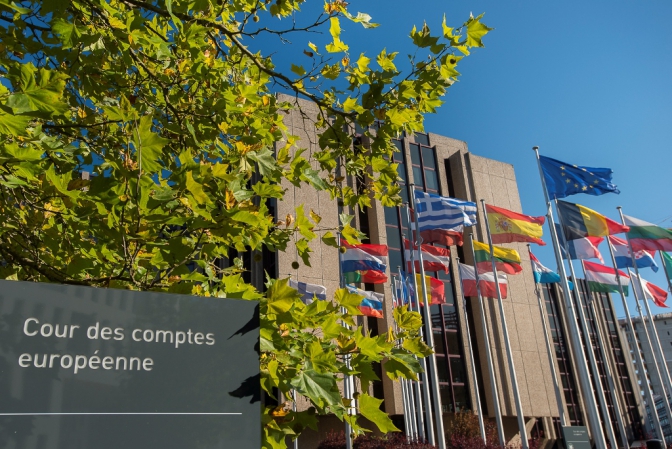The EU Digital COVID Certificate was effective in facilitating travel during the COVID-19 pandemic but the use and impact of other EU tools were modest, according to an audit report published on Wednesday by the European Court of Auditors (ECA).
To facilitate travel and to help trace COVID-19 cases, the European Commission developed four tools:
- the European Federation Gateway Service – a gateway for ensuring EU-wide interoperability between national contact-tracing applications;
- the EU digital Passenger Locator Form – a tool replacing paper forms used to collect contact-tracing information during travel;
- the EU Digital COVID Certificate – a certificate confirming vaccination against COVID-19, recovery or a negative test;
- the platform for exchanging passenger locator forms – a solution for national authorities in different Member States to exchange contact-tracing data.
“It was crucial that all EU countries adopt common tools to coordinate free movement restrictions and facilitate travel despite the unprecedented situation we were faced with”, said Baudilio Tomé Muguruza, the Spanish ECA member responsible for the audit. “Not all EU tools were taken up by Member States, and the success of the EU Digital COVID Certificate was not reflected in other tools.”
The audit complements a previous audit in June 2022, which assessed whether the Commission took effective action to protect peoples’ right of free movement during the COVID-19 pandemic. That audit was critical against the Commission for not exercising proper scrutiny that internal border controls complied with the Schengen legislation.
The member states’ actions to fight COVID-19 remained mostly uncoordinated. In particular, the auditors identified shortcomings in the Commission’s monitoring of their notifications of the border controls.
In the new audit, ECA concludes that overall, despite its limited competence in public health policy, the Commission moved fast to propose suitable technological solutions to facilitate travel within the EU during the COVID-19 pandemic. However, the Members’ States use of the different tools varied significantly, so their impact in facilitating travel was uneven.
In practice, the EU Digital COVID Certificate was the only tool used in all Member States, and even by 45 non-EU countries and territories. More than 1.7 billion certificates had been issued by the end of March 2022.
Only four Member States used the EU digital passenger locator form and, of almost 27 million forms issued by February 2022, over 9 in 10 were issued by a single EU country, Italy. Similarly, the exchange platform was hardly used at all, with only 256 by the end of February 2022 (all but one from Spain).
The uptake of contact-tracing applications varied significantly: by May 2022, the bulk of data on the gateway (83 %) was generated by users from Germany alone.
According to ECA, the Commission moved fast to propose suitable technological solutions but there were delays and during the crisis it seemed that it responded retroactively to the waves of COVID-19. There was no full roll-out of digital tracing when the lockdown restrictions were phased out and the tool was to be used voluntarily because of EU data protection rules.
The use of the digital COVID certificate was extended for 9 months when the Commission in November 2021 urged the member states to start booster vaccination although it was known by then that the impact of the primary vaccination was waning after 6 month or even before.
The audit team told The Brussels Times that this issue was outside the scope of the audit which focused on the IT-tools per se and did not address the scientific advice on their use. There was no obligation to include the validity period in the certificates.
The audit flags up the lack of specific procedures for the use of the digital tools in the longer term, or for re-activating them quickly in the event that they are needed again. For instance, the current legal basis for the EU Digital COVID Certificate expires in June this year; if it is renewed, it will be through the standard EU legislative procedure.
The reason for the low uptake of some of the tools was basically that the member states had developed their own solutions without waiting for the Commission to coordinate them.
ECA recommends the Commission to further analyse and address the reasons for the low uptake of EU digital passenger locator forms, streamline communication on incidents linked to the EU Digital COVID Certificate, and prepare relevant EU tools for future crises.
“The Commission takes note of the report,” Christian Wigand, Commission Spokesperson for Justice, Equality and Rule of Law, told The Brussels Times. “We welcome that the report recognizes that the Commission quickly mobilised EU funds and developed suitable technological solutions addressing data protection concerns, as well as applying good IT security practices.”
“The report confirms once more that the EU Digital Covid Certificate was a success story: it positively notes that the Commission developed the EU Digital COVID Certificate system very fast, which was used by Member States extensively, facilitating travel and harmonising Member States’ travel restrictions. The Commission is committed to following up on the audit recommendations.”
M. Apelblat
The Brussels Times

